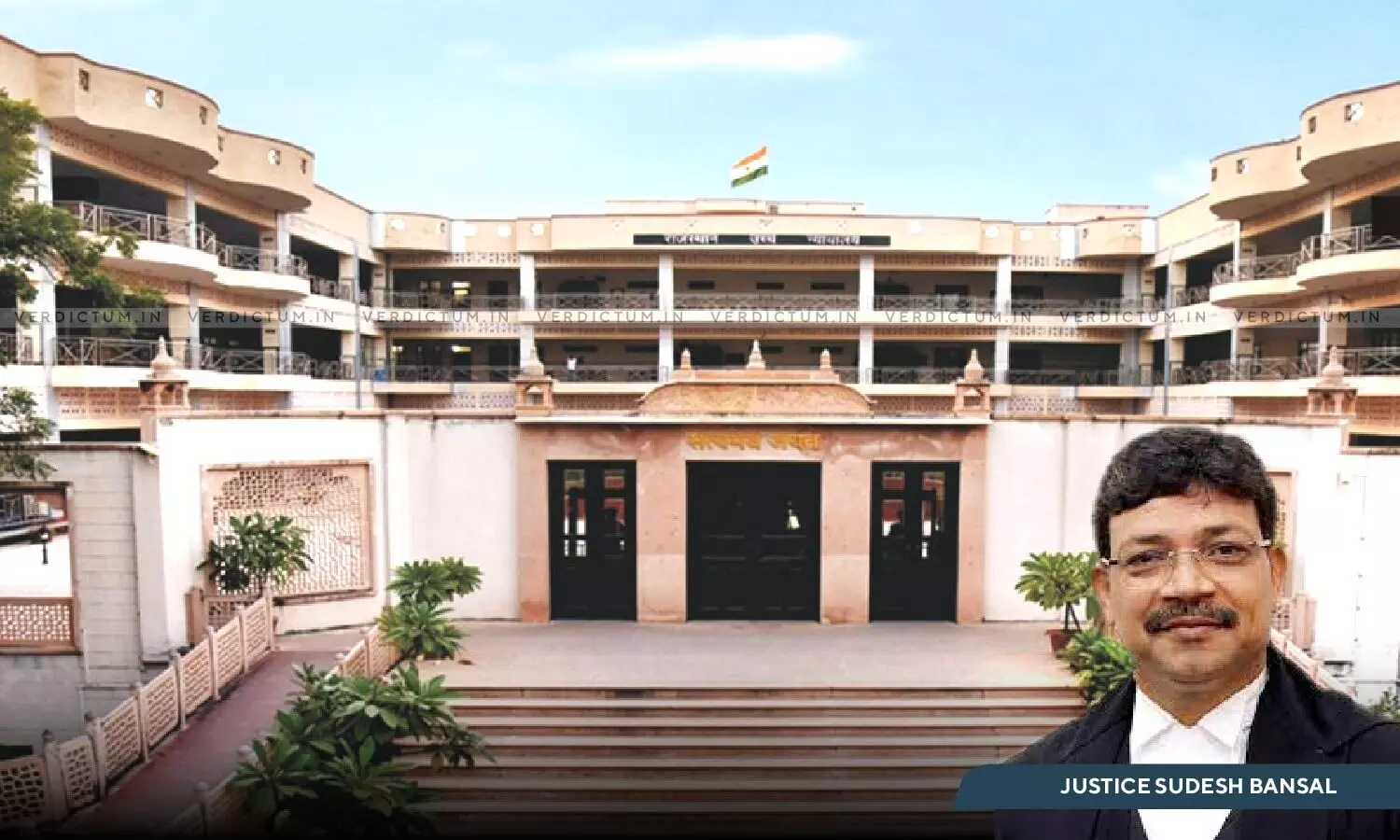
Powers To Release Accused On Probation Can Be Exercised By Appellate Court But Only When It Is Expedient To Do So: Rajasthan HC
 |
|The Rajasthan High Court enunciated that the powers to release an accused on probation can be exercised by the Appellate Court but only when in the opinion of the court, it is expedient to do so.
The Court enunciated thus in a criminal appeal filed by two accused persons against the judgment of the Special Judge, The SC/ST (Prevention of Atrocities Cases), Jaipur by which they were convicted for the offence under Section 307 of the Indian Penal Code (IPC) and sentenced to undergo rigorous imprisonment of 7 years along with a fine of Rs. 100/- each.
A Single Bench of Justice Sudesh Bansal said, “It is noteworthy that powers to release accused on probation may be exercised by the Appellate Court as well, within limitation of Section 3 and 4 of the Probation of Offenders Act, 1958 but only when in the opinion of Court, it is expedient to do so. The Act of 1958 recognizes a distinction between offenders below 21 years of age and those above that age, and offenders who are guilty for offence punishable with death penalty or imprisonment for life and those who are guilty of a lesser offence.”
Advocate D.K. Dixit appeared on behalf of the appellants/accused while Public Prosecutor Laxman Meena appeared on behalf of the respondent/State.
Facts of the Case -
The genesis of the appeal in this case was a ‘parcha bayan’ of the complainant/injured who was a police Head Constable, made in 1988 whereupon an FIR was registered against the appellants/accused for the offences under Sections 307 and 34 of IPC. In parcha bayan, he stated that the appellants had rivalry from him and when he went to get iron his clothes from washerman, he was attacked by the appellants with knife. He stated that he was stabbed in stomach, waist, chest, and left shoulder as also on back by the knife and when he fell down, both accused ran away from there shouting that he has died.
The complainant further stated that, after having hurt, he hired an auto-rickshaw and came to a place where he met a Constable with whom he went to the hospital. In the parcha bayan, he also named the third brother of both assailants and the same was recorded in the hospital and after registration of FIR, investigation was commenced. Thereafter, the appellants were arrested. The Sessions Court vide its judgment convicted and sentenced both of them and being aggrieved by this, they approached the High Court.
The High Court in the above context of the case observed, “In case of Rattan Lal Vs. State of Punjab [AIR 1965 SC 444], the Hon’ble Supreme Court while discussing the purpose and object of the Probation of Offenders Act, 1958, observed that for offenders, who are above the age of 21 years, absolute discretion is given to the Court to release them after admonition or on probation of good conduct subject to the scope of the Act. Thus, the view of Coordinate Bench is in consonance and conformity to the precedent settled by the Hon’ble Supreme Court, while granting probation to the accused, who were above the age of 21 years on the date of commission of offence and it is permissible in law to release the accused on probation, even though, he has crossed the age of 21 years on the date of occurrence.”
While considering the fact that the complainant has not suffered any permanent disability or reduction of his life span because of hurts received to him rather has recuperated, the Court noted that instead of sending appellants to suffer incarceration for remaining period of jail sentence, it would be expedient to grant the benefit of probation to them.
“… simultaneously an additional fine of Rs.50,000/- on appellants is imposed which shall be payable as compensation to the victim Murarilal and if he has passed away, then to the family/ legal heirs of victim-Murarilal”, it directed.
Accordingly, the High Court partly allowed the appeal and modified the impugned judgment.
Cause Title- Munna alias Jaid & Anr. v. State of Rajasthan (Neutral Citation: 2024:RJ-JP:25701)